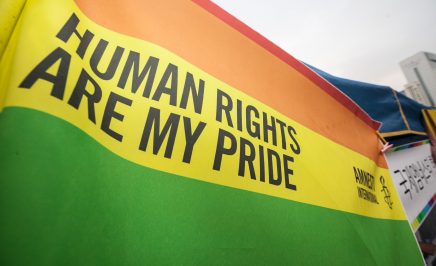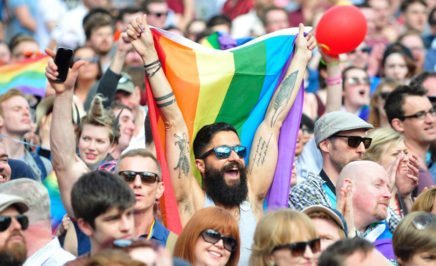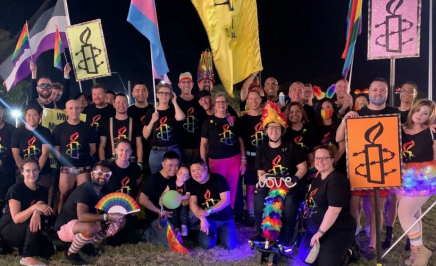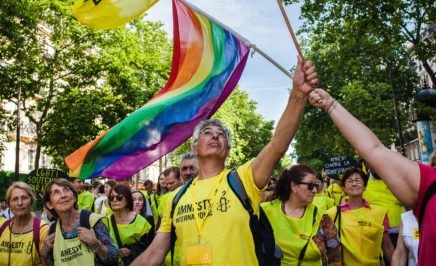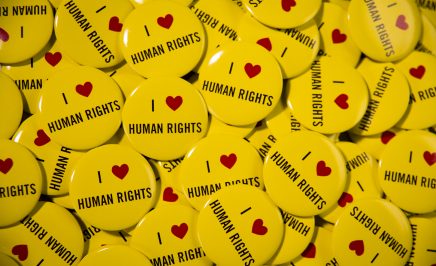CONTENT WARNNG: Contains discussion of suicide and mental health
During the height of the marriage equality debate, a close friend of mine took his life. The grief, the shock, the guilt, the pain, the heartbreak was something I had never felt before. He was my girlfriend’s best friend, and she was broken. The next few months were the worst we had experienced in our lives.
And while we suffered in our private agony, we endured a national “debate” on whether or not we were entitled to the same rights as everyone else in the country.
It felt like a body blow to be reminded constantly that not only did many people believe we weren’t equal, but that they would be allowed a vote on it.
I will never forget less than 48 hours after he died, dragging ourselves to a Marriage Equality rally, puffy faces, stinging eyes, tears streaming, in a haze of grief and disbelief, feeling obliged to be there because it was our last chance to plead and scream at the top of our lungs that we mattered.
I’ll never forget walking down the street holding hands one night, feeling so hollow with grief, and being confronted by a group of men yelling at us, laughing: “Oi, tell us why we should vote for you, you have to convince us”.
I’ll never forget coming into work at my previous job the day the vote results were announced and seeing that the colleague I shared an office with had already thrown the “Yes” poster in the bin. The same colleague who had, despite knowing I was queer, unabashedly shared with me multiple times throughout the campaign why she would be voting no, as if it were a casual conversation topic.
I felt nothing but numbness and sadness when I heard the results. I was unable to bring myself to celebrate or feel any joy. We just had to defend our existence in a postal plebiscite. Only two thirds of Australia had voted in favour of our rights. Was that a win? It didn’t feel like it.
We just had to defend our existence in a postal plebiscite. Only two thirds of Australia had voted in favour of our rights. Was that a win? It didn’t feel like it.
I am still so angry that some of the worst days of our lives were made unnecessarily more difficult by the people who were supposed to be the leaders of our country.
And I am so unbelievably furious that, with the Religious Discrimination Bill, we find ourselves here yet again, with our rights back up for debate.
But I feel like this is not the end of either the Bill or the debates, but the beginning of a long and unpleasant feature of the imminent election campaign.
The fact is these debates don’t happen in a vacuum. They spill out everywhere; on the news, social media, in casual conversations, in the workplace, around dinner tables and in schools. We become surrounded as they infiltrate every part of our lives. They cause real harm to a community in which mental health issues are well above the national average.
I am fiercely proud of being queer, but these debates still affect me. I shudder to think about the effects they would have had on me if they had happened when I was a teenager. When I couldn’t say the words “I am gay” without crying. Trying to work up the courage to reveal my deep dark secret. Worrying every day about how my friends and family’s perception of me would change when they found out who I really was. Not knowing if I would ever find other people who were like me. Trying desperately to push down the shame and the fear, to convince myself that who I was was okay.
It both terrifies and infuriates me to think about the effect these debates are having on people, especially children, who have not yet come to terms with their gender and sexuality – trans and gender diverse kids, kids who don’t know yet that there is absolutely nothing wrong with the person they are, kids who are listening to people question their validity and internalising the message that they are not worthy, kids who don’t feel safe at home or at school, kids who are terrified someone will find them out, and those who just can’t take it anymore. The hate, shame and fear these debates stoke is dangerous.
If you are part of the dominant culture which takes for granted the right to exist precisely how you are on your own terms, it can be hard to relate. But I would ask you to consider my experience of trying to come to terms with losing a dear friend, while having my agency removed in a national debate about what I can and can’t do with my life.
We are exhausted. We are tired of spending our time and energy defending ourselves. We are worn out from feeling the burden of responsibility to stand up and speak out, to protect those who are more vulnerable than us. We are sick with worry about the harm being inflicted on our community and the effects it will have on people’s mental health, safety and sense of worth.
We don’t need a bill to address religious discrimination, but we do need a Federal Human Rights Act which would effectively balance the tensions between rights and stop these damaging “debates”.
Lucy Kenny is a campaigner at Amnesty International Australia

